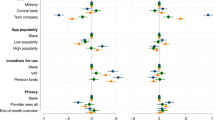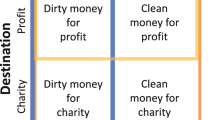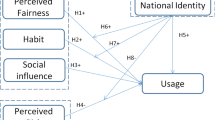Abstract
Although Britain is only now adopting a decimal currency, the idea was first mooted three hundred years ago.
This is a preview of subscription content, access via your institution
Access options
Subscribe to this journal
Receive 51 print issues and online access
$199.00 per year
only $3.90 per issue
Buy this article
- Purchase on SpringerLink
- Instant access to full article PDF
Prices may be subject to local taxes which are calculated during checkout
Similar content being viewed by others
References
Hartlib Papers, manuscripts in Sheffield University Library, Bundle XXVII, section 20.
Wood, A., Alumni Oxoniensis (edit. by Bliss, P.), 4, 167 (1820); Aubrey, J., Brief Lives (edit. by Clark, A.), 1, 120, 290; 2, 113, 141 (Oxford, 1898); Mathews, A. G., Calamy Revised, 542 (Oxford, 1934); Dictionary of National Biography, 62, 372; Taylor, E. G. R., The Mathematical Practitioners of Tudor and Stuart England, 226, 347 (Cambridge University Press, 1954).
The Key of Mathematicks New Forged and Filed (London, 1647).
Hartlib Papers, manuscripts in Sheffield University Library, Bundle XXXIII, section 1.
Horsefield, J. K., British Monetary Experiments 1650–1710, 292, 325 (Harvard University Press, 1960); Sir Christopher Wren's Proposal, [1695].
Author information
Authors and Affiliations
Rights and permissions
About this article
Cite this article
WEBSTER, C. Decimalization under Cromwell. Nature 229, 463 (1971). https://doi.org/10.1038/229463a0
Issue date:
DOI: https://doi.org/10.1038/229463a0



